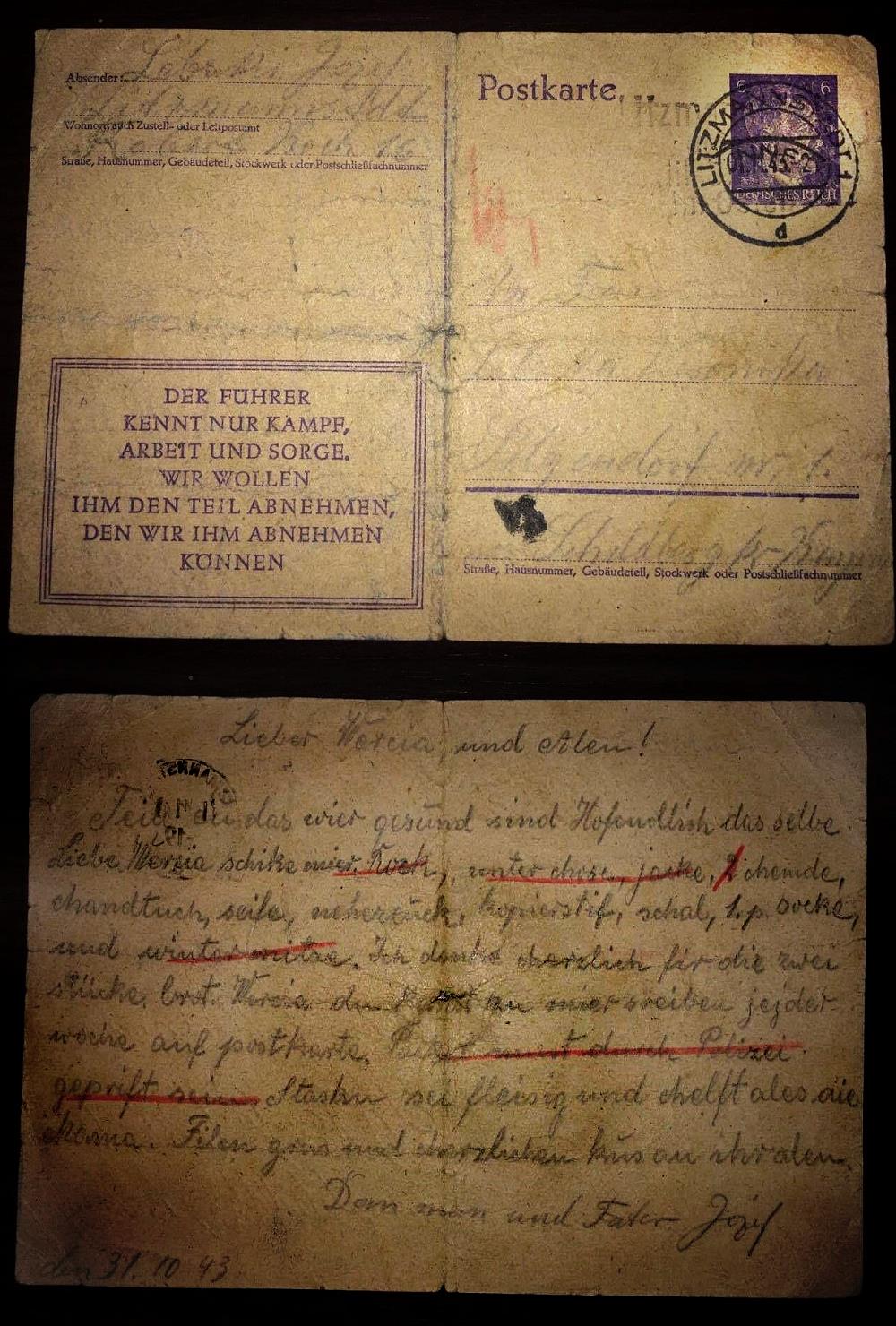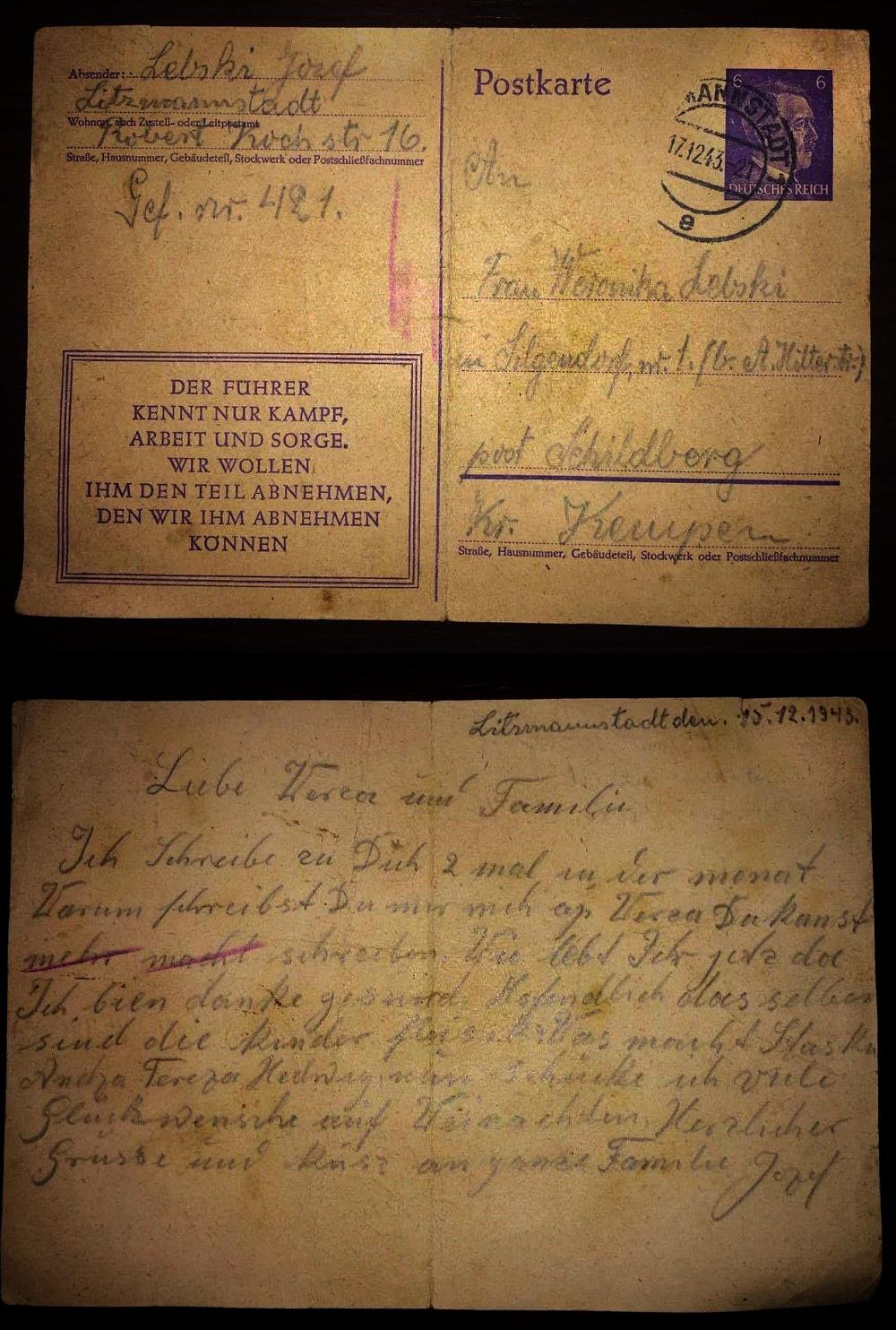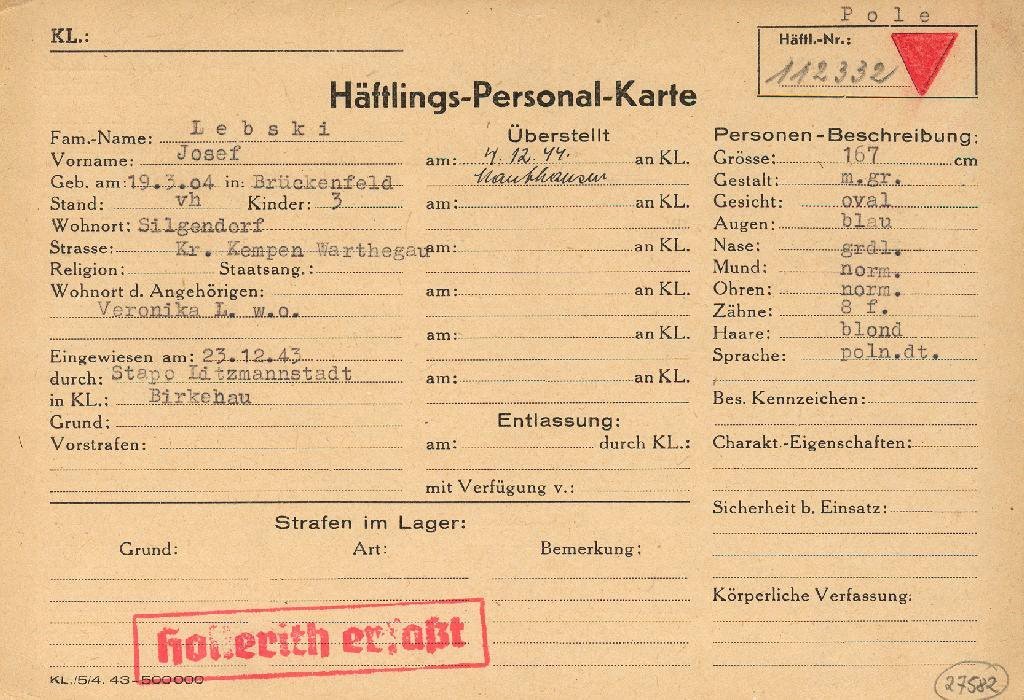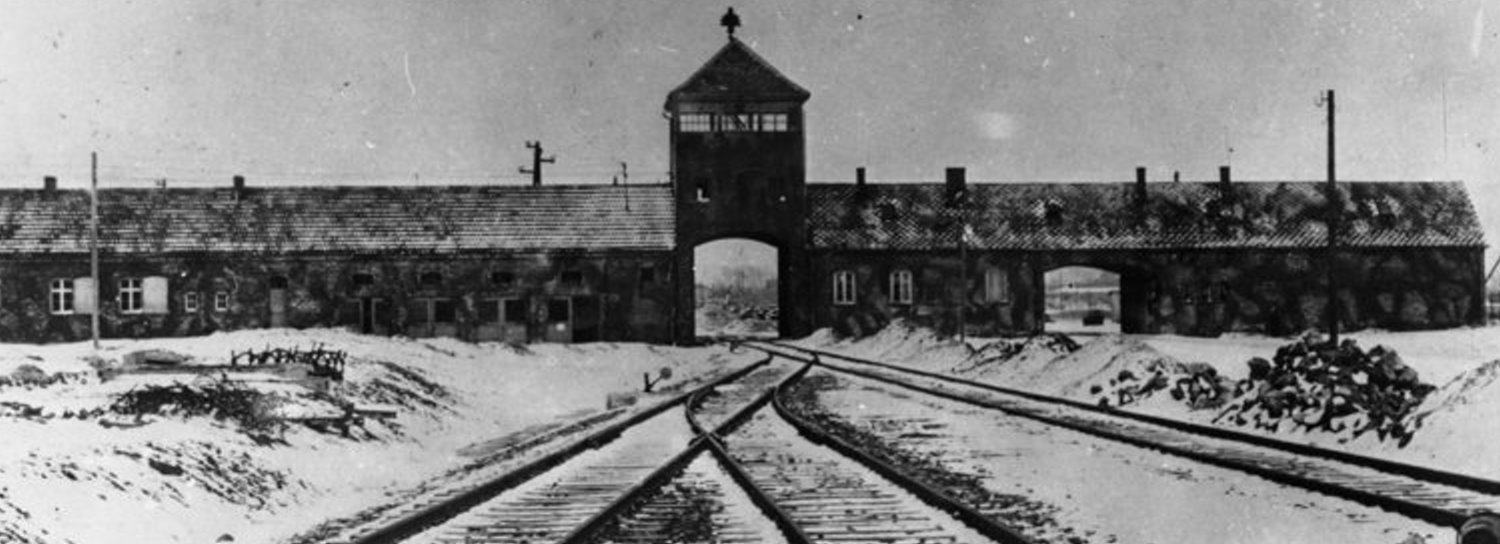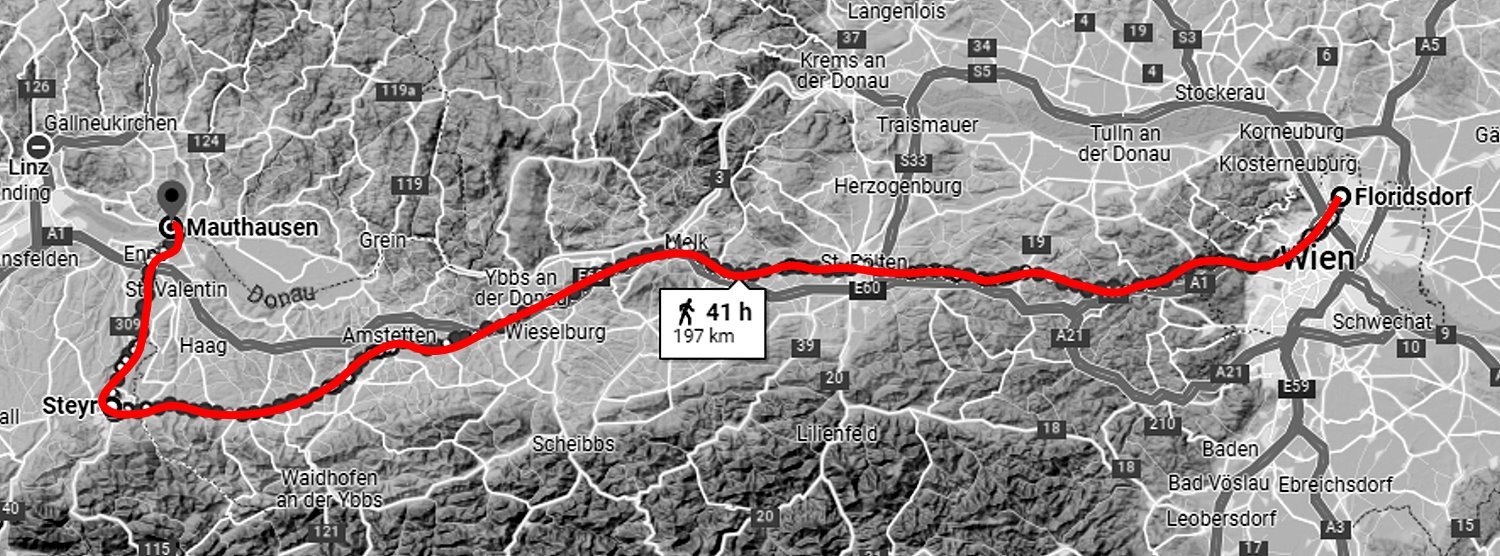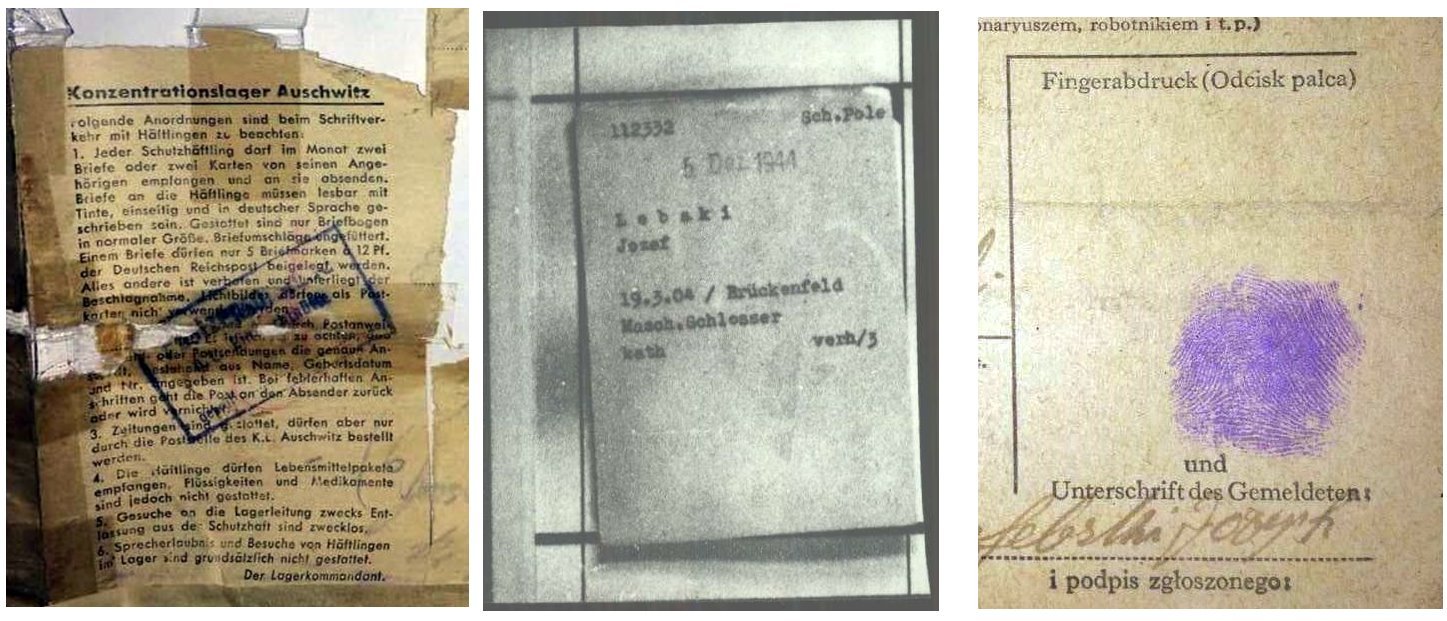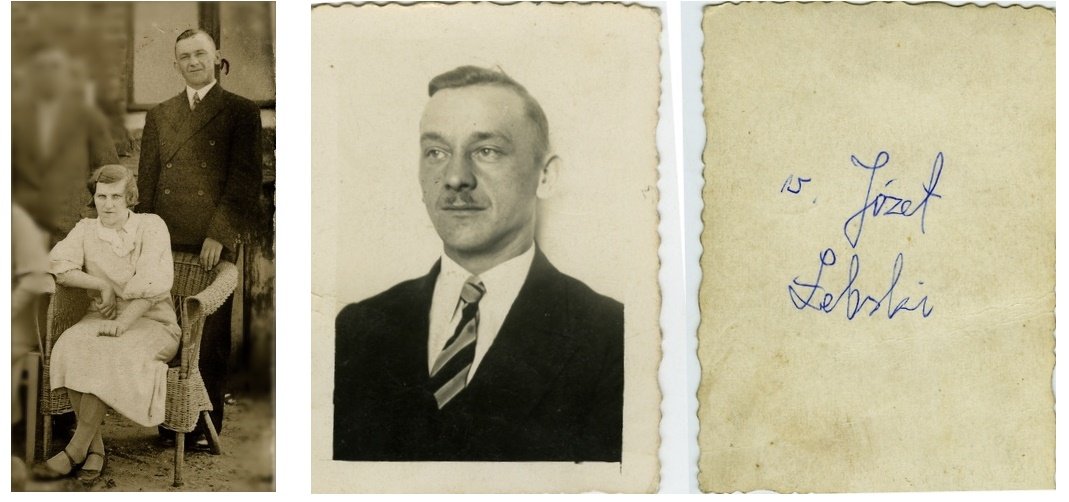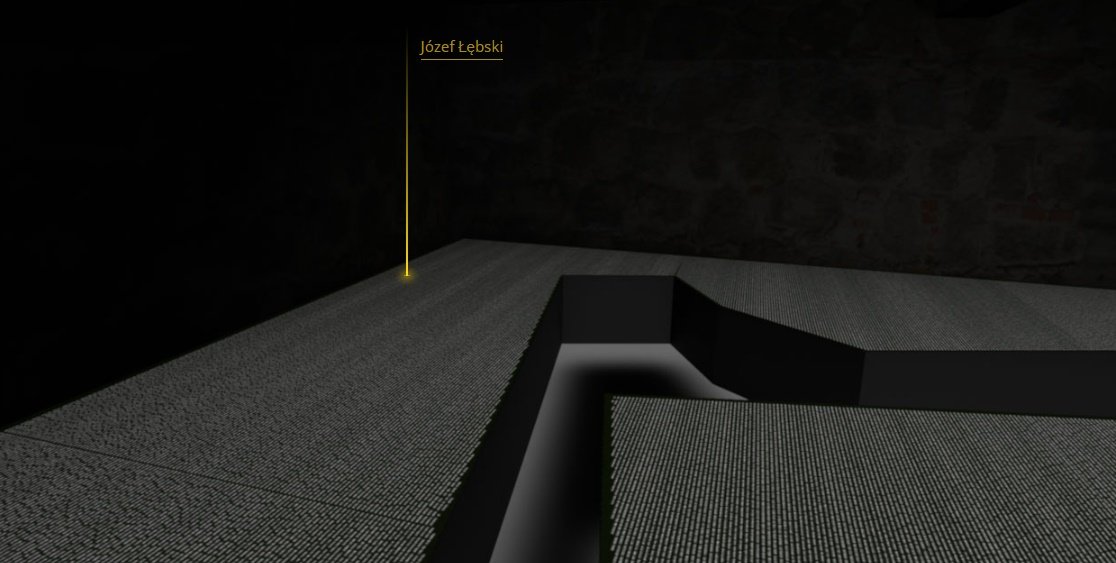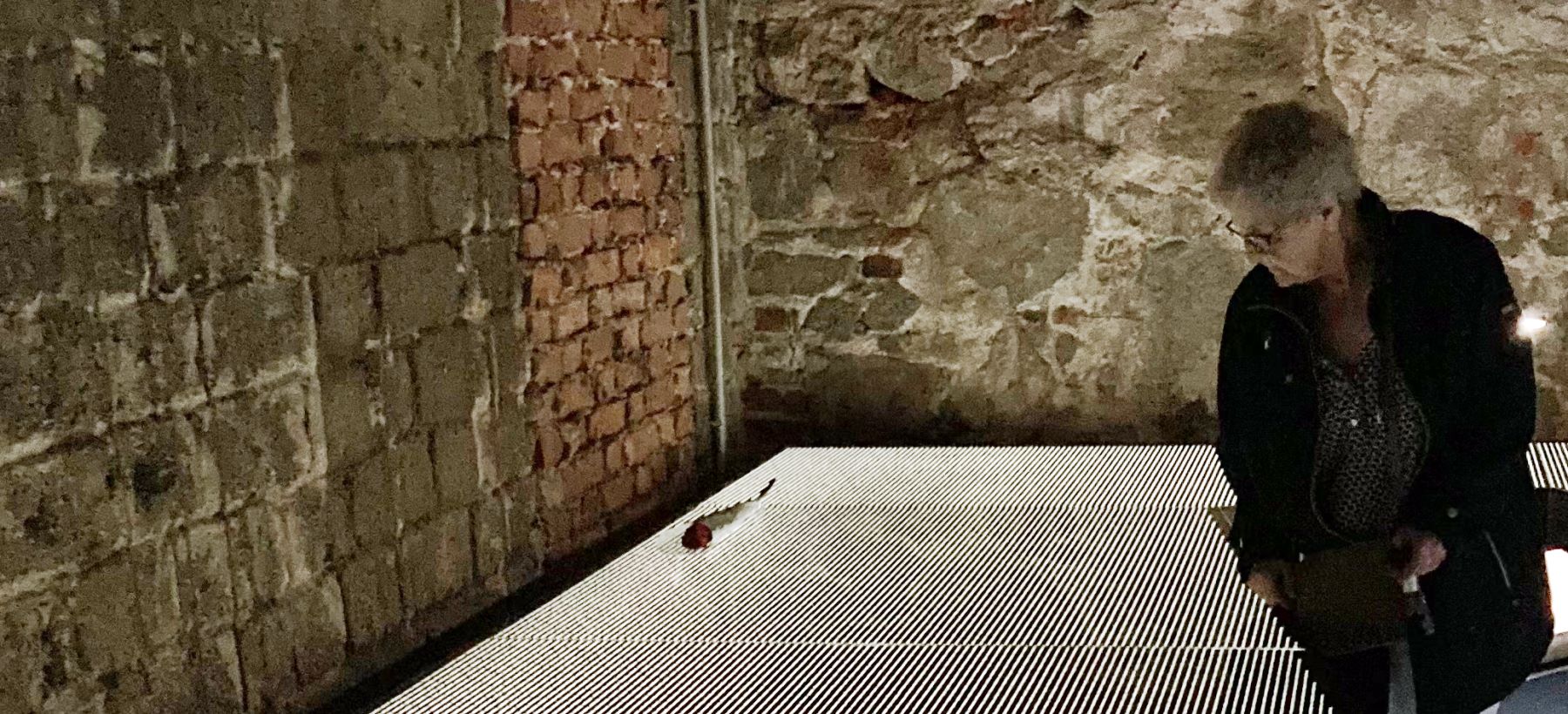Józef Łebski and his story
When you visit this site as an outsider, the dead whisper the horror into your ear. They are still here, and their silence for over 75 years sounds like a groan in your ears. You stand among survivors who sometimes doubt whether it was good to stay, because today’s perpetrators are already thinking about tomorrow and heap brown mockery onto the death of the silent ones. That is why you must repeatedly hear from the dead how it was back then, over and over again, so that you do not forget anyone or anything, and maybe they can forget a little, at least a little. Tears alone are not enough..
tenhumbergreinhard.de
The only letter from Józef Łebski that has survived to this day was sent from the Auschwitz concentration camp to his wife Weronika Łebska on 3 December 1944. For 78 years it was the only proof that Józef Łebski was still alive in December 1944. Despite many years of effort, his wife Weronika Łebska was unable to establish the exact circumstances of his death. Weronika Łebska died in 1982 believing that her husband had been murdered in the Auschwitz concentration camp. The digitalized documents available at the Arolsen Archives (https://arolsen-archives.org/) allowed the reconstruction of the course of Józef Łebski’s last days and the location of his death.
To:
Mauthausen Memorial/Information on former concentration camp prisoners
Dear Sir/Madam,
My name is (…) and I am writing on behalf of my mother, Anna (…) (born Łebska). This concerns your father and my grandfather, Józef Łebski, who was born on March 19, 1904, in Ligota (formerly Breckenfeld), Poland.
He was arrested on October 17, 1943, while working with his brother Michał by the Gestapo and taken to the police prison at Robert-Koch-Strasse 16 in Łódź (Litzmannstadt). Prisoners here were arrested by the Gestapo for sabotage, political activity, fighting for independence or belonging to the Polish resistance movement. The two postcards he sent to his wife Weronika (one on October 31, 1943, and another on December 17, 1943) came from there.
On December 22/23, 1943, he was deported from Litzmannstadt (Łódź) to Auschwitz. The last sign of life from him was a letter he wrote to his wife Weronika (whom he affectionately called Wercia) on December 3, 1944, from the Auschwitz concentration camp. After that, his trace was lost. The search for him that my grandmother undertook after the war (through the Red Cross) was unsuccessful. She died in 1982 without learning where and how her husband had died.
Recently, I found digitized documents in the Online-Arolsen Archives that shed some light on my grandfather’s last days. It appears that he was transferred from Auschwitz to Mauthausen on December 4/5, 1944. My further research has revealed that he died in Mauthausen in 1945. I found this information on the “Raum der Namen” portal.
My questions: In the “Raum der Namen” portal, the name Józef Łebski is misspelled as “Łębski,” and the birthplace is spelled incorrectly. Instead of Brückenfeld, it should be Breckenfeld, which means Ligota in Polish. Could you please correct this? Do you have any further information on when exactly he died or any information at all about him?
I would appreciate your response.
Sincerely,
Anna (…)
Wednesday, 15 February 2023 17:34
Dear Mr. (…),
Please find attached a query from the prisoner database of the Mauthausen Memorial Archive providing information about Jozef Lebski. Additionally, we are sending you a scan of the Political Department’s prisoner admission book (Sign. MM/Y36b) and a scan of the prisoner personnel file (MM/2/2/7/1), which indicates that Mr. Lebski was admitted to the Mauthausen concentration camp on December 6, 1944, coming from Auschwitz. He was then transferred to the Floridsdorf subcamp and later back to the main camp at Mauthausen. Jozef Lebski died a few days after the liberation, but unfortunately, we could not find exact dates. The name and birthplace will be corrected in the Room of Names. Thank you for bringing this to our attention.
We apologize for the delayed response, which is due to the large number of inquiries received by the archive.
Best regards,
Collection – Library | Collection – Library
Argentinierstraße 13, TOP 103+104
A-1040 Wien | Vienna
Tel: +43 1 376 3000-112
memorial.org
www.mauthausen-memorial.org
3.3.2023 17:09
On December 22/23, 1943, Józef Łebski was deported from the police prison located at Robert-Koch-Strasse 16, Litzmannstadt (Łódź) to the Auschwitz-Birkenau concentration camp.
(Ramp admission photo from the Auschwitz concentration camp taken in 1945 by Stanisław Mucha)
The SS established two satellite camps of the Mauthausen concentration camp in 1944 on the premises of the Jedlesee brewery and winery in Jedlesee, and on the premises of the Hofherr-Schrantz company in Floridsdorf. These were created in July 1944 after the Schwechat I and Schwechat II camps were destroyed by a bombing raid. Due to the advance of the Red Army, a total of 2,710 prisoners were sent on an evacuation march to Mauthausen on April 1, 1945, during which prisoners were murdered before and during the march (wikipedia.org)
The Hofherr & Schrantz and AFA commandos, as well as the Jedlesee commando, were evacuated on April 1, 1945, indicating that the evacuation was not likely carried out via the Hinterbrühl subcamp. The evacuation march, which passed through the Steyr subcamp, reached the Mauthausen concentration camp on April 11, 1945. According to a record from the camp’s administration office, a total of 121 prisoners were killed during this march, while 22 remained missing or had escaped. The number of deaths in the Floridsdorf subcamp alone is estimated to have been 45 prisoners
https://www.mauthausen-guides.at
On May 3, 1945, the last SS members fled from the Mauthausen and Gusen camps. On May 5, a reconnaissance unit of the US Army arrived in Gusen and Mauthausen, and the following day, units of the 3rd US Army finally liberated around 40,000 prisoners from these camps. In both places, they found hundreds of corpses of concentration camp prisoners who had died in the days before liberation. Thousands were so weakened and medically compromised that, despite medical care provided by US Army medical units, they continued to die in the weeks and months after liberation. More than 3,000 dead were buried in the “Camp Cemeteries” next to the former concentration camps. (mauthausen-memorial.org)
Józef Łebski passed away a few days after the liberation of Mauthausen concentration camp. The exact date and circumstances of his death could not be determined. A single photograph shows him together with his wife Weronika, whom he affectionately called “Wercia”.


